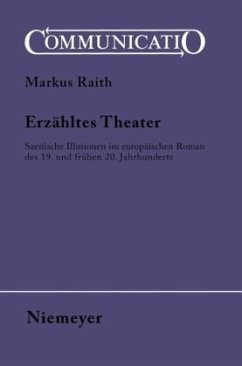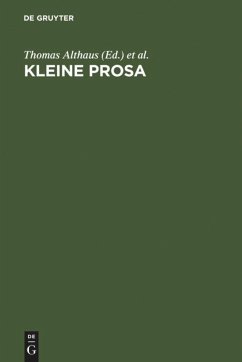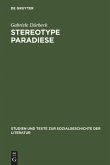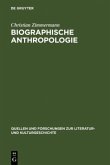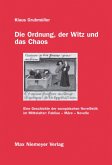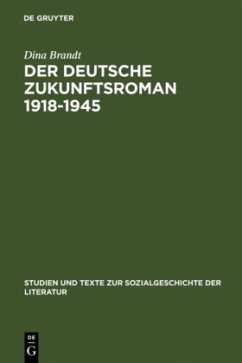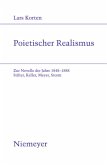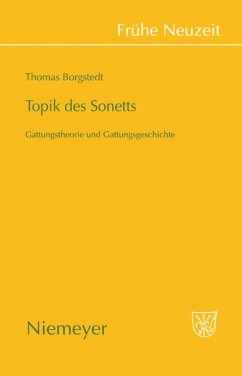Exceptionally, perhaps, the study does not concentrate on the role of the theatre in the (German) bildungsroman. Instead, a comparative perspective is chosen to elucidate how and why European novelists talk about the theatre. Poetological considerations, such as the function of the theatre for the organization of the narrative, are given just as much attention as issues connected with the history and theory of aesthetic experience in modernism. In short, the concern is to examine the literature of the 19th and early 20th centuries in terms of the history of art, society, and the media. As such, the study is a perusal of perception mechanisms that have remained with us to this day.
Wie in Romanen vom Theater erzählt wird, steht im Mittelpunkt dieser Studie. Allerdings gilt ihr Interesse nicht der Bildungsidee in der Tradition von Goethes »Wilhelm Meister«, sondern den Funktionen erzählten Theaters wie sie nur in europäischer, vergleichender Perspektive zu beobachten sind. Dieser Blickwinkel erlaubt es, ein vor allem in der Germanistik abgehandeltes Phänomen in ganz anderem Licht zu zeigen und weltberühmte, scheinbar längst transparent gemachte Romane neu zu erschließen, aber auch weniger bekannte Werke vorzustellen. Am erzählten Gegenstand Theater wird jeweils das Verhältnis von Illusionierung und Einspielungsvermögen sondiert: Wie wird Fiktion wahrgenommen und welche weitergehenden Rückschlüsse lassen sich daraus für das Wechselverhältnis von Rezipient und Kunstwerk ziehen?
Es geht also zunächst um poetologische Überlegungen, um die Funktion des Theatersujets für den Erzählprozeß. Darüberhinaus leistet »Erzähltes Theater« auch einen Beitrag zurGeschichte und Theorie der ästhetischen Erfahrung in der Moderne, exemplarisch veranschaulicht an der Wechselwirkung von Bühnenspiel und Publikum, von Theater und urbanem Raum. Anders gesagt: Die untersuchten Romane - vorgestellt in sechs Hauptkapiteln in chronologischer Folge - laden zu einem kunst-, sozial- und mediengeschichtlichen Streifzug durch die europäische Literatur des 19. und frühen 20. Jahrhunderts ein, zu einer Inspektion von Wahrnehmungsprozeduren, die bis heute nachwirken.
Wie in Romanen vom Theater erzählt wird, steht im Mittelpunkt dieser Studie. Allerdings gilt ihr Interesse nicht der Bildungsidee in der Tradition von Goethes »Wilhelm Meister«, sondern den Funktionen erzählten Theaters wie sie nur in europäischer, vergleichender Perspektive zu beobachten sind. Dieser Blickwinkel erlaubt es, ein vor allem in der Germanistik abgehandeltes Phänomen in ganz anderem Licht zu zeigen und weltberühmte, scheinbar längst transparent gemachte Romane neu zu erschließen, aber auch weniger bekannte Werke vorzustellen. Am erzählten Gegenstand Theater wird jeweils das Verhältnis von Illusionierung und Einspielungsvermögen sondiert: Wie wird Fiktion wahrgenommen und welche weitergehenden Rückschlüsse lassen sich daraus für das Wechselverhältnis von Rezipient und Kunstwerk ziehen?
Es geht also zunächst um poetologische Überlegungen, um die Funktion des Theatersujets für den Erzählprozeß. Darüberhinaus leistet »Erzähltes Theater« auch einen Beitrag zurGeschichte und Theorie der ästhetischen Erfahrung in der Moderne, exemplarisch veranschaulicht an der Wechselwirkung von Bühnenspiel und Publikum, von Theater und urbanem Raum. Anders gesagt: Die untersuchten Romane - vorgestellt in sechs Hauptkapiteln in chronologischer Folge - laden zu einem kunst-, sozial- und mediengeschichtlichen Streifzug durch die europäische Literatur des 19. und frühen 20. Jahrhunderts ein, zu einer Inspektion von Wahrnehmungsprozeduren, die bis heute nachwirken.

